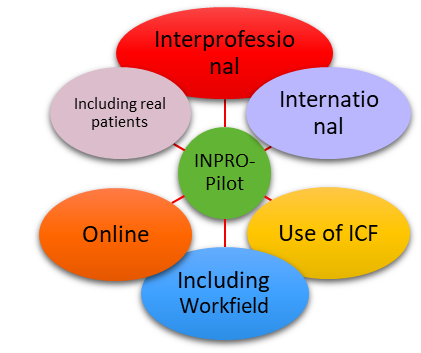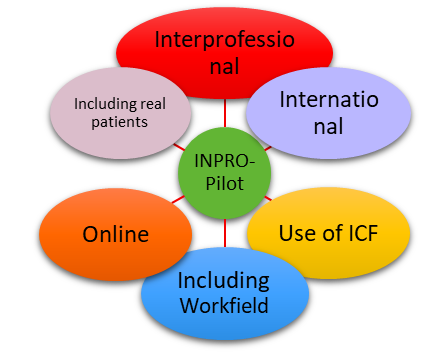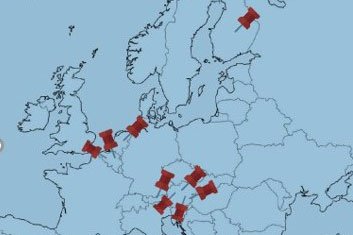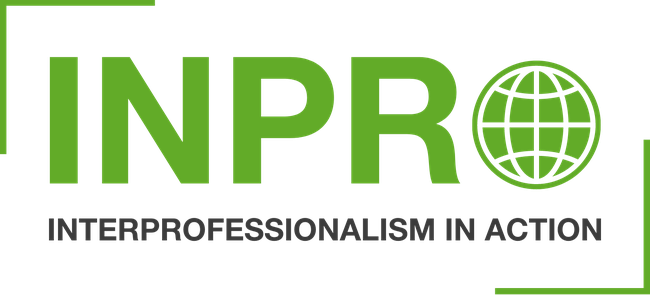Now Online: First Information on “INPRO” Project
The project "interprofessionalism in action!" reports on its first findings. The first blog entry on the INPRO website comes from Austria.

The project INPRO is subsidised by ERASMUS+ and aims at improving patient care. To this end, members of the health and social professions (both professionals and learners) from all over Europe come together and share their promising interprofessional experiences.
The first three findings regarding interprofessional, international and patient-oriented learning and teaching are now online.
Online Contributions from Austria
Since the end of May 2021, current information and milestones in the progress of the INPRO project can be found on the official project website. Interested visitors can subscribe to the newsletter, register for the download of the project insights, watch a video featuring the INPRO rap and read the first blog entry.
As active project partners from Austria, the St. Pölten University of Applied Sciences and Moorheilbad Harbach had the honour to contribute the first blog entry for the new website.
The First Three Important Findings
1. Combining the tasks of different work packages is a continuous process that takes a lot of communication. It pays off to spend time on internal coordination!
2. Communication via online tools is a central facilitator for international projects. The COVID-19 pandemic has helped the project members to improve their skills in this respect.
3. The diversity of professional, national and institutional framework structures is both challenging and enriching.
Read the complete blog post here.
Developing Innovative Interprofessional Teaching
The top 3 learning processes will help the researchers carry out the first pilot tests at the beginning of December to ensure feasibility, these will be followed by further pilot tests to check usability in 2022. The topics are:
• “Global Interprofessional Classroom”
• “Interprofessional Lectures with Practice Partners”
• “Interprofessional Further Trainings for Professionals”
The St. Pölten University of Applied Sciences coordinates the work package “Promising Person-Centred and Interprofessional Approaches to Education and Further Training”. The objective is to design interprofessional teaching for the health and social professions in such a way that it transcends borders as a Future University.

Copyright: St. Pölten UAS / Ursula Hemetek
Survey on Promising Interprofessional Teaching
In its first part, the work package mentioned above deals with identifying existing practical examples of interprofessional teaching in the partner countries Belgium, Finland, the Netherlands and Austria. For this purpose, a questionnaire was sent to higher education institutions in these partner countries. “
The now completed “INPRO Expert Inquiry 2021 on Practice Examples of Interprofessional Education in Austria, Belgium, Finland and the Netherlands” has resulted in an intra-project research report that forms the basis for developing a process guideline now.

Copyright: Freeworldmaps.net
Learning Experiences across Borders
21 teaching examples from nine higher education institutions are described in the detailed survey report. The St. Pölten University of Applied Sciences contributed three examples that already show potential synergies with other universities’ teaching projects.
For example, the interdisciplinary projects “iLab“ from Austria and “Future Factory“ from Finland could share interesting experiences and projects, while the pilot project “PROMISE“ could obtain valuable advice from experienced learning activities in large groups for its implementation in the curricula of all health-related study programmes.
When it comes to the collaboration with practice partners and patients, which plays a central role in the INPRO project, the St. Pölten UAS shares experiences regarding the potential for development from its course “Interdisciplinary Communication” that is already an integral part of the bachelor degree programme “Physiotherapy”.
The results of the survey give an insight into examples of didactic processing, the formulation of learning goals, and competencies. Barriers to and promoting factors of interprofessional teaching from various countries and higher education institutions are described. INPRO researchers currently use the collected data as inspiration and impulse for developing the next project steps.
To make this inspiration and motivation publicly accessible to interested teachers and learners, the individual teaching examples have been visualised in a didactically sound fashion based on a survey among lecturers within the framework of a master thesis by Theresa Draxler, student of the master degree programme Digital Healthcare, and published on the project website.
More Information

